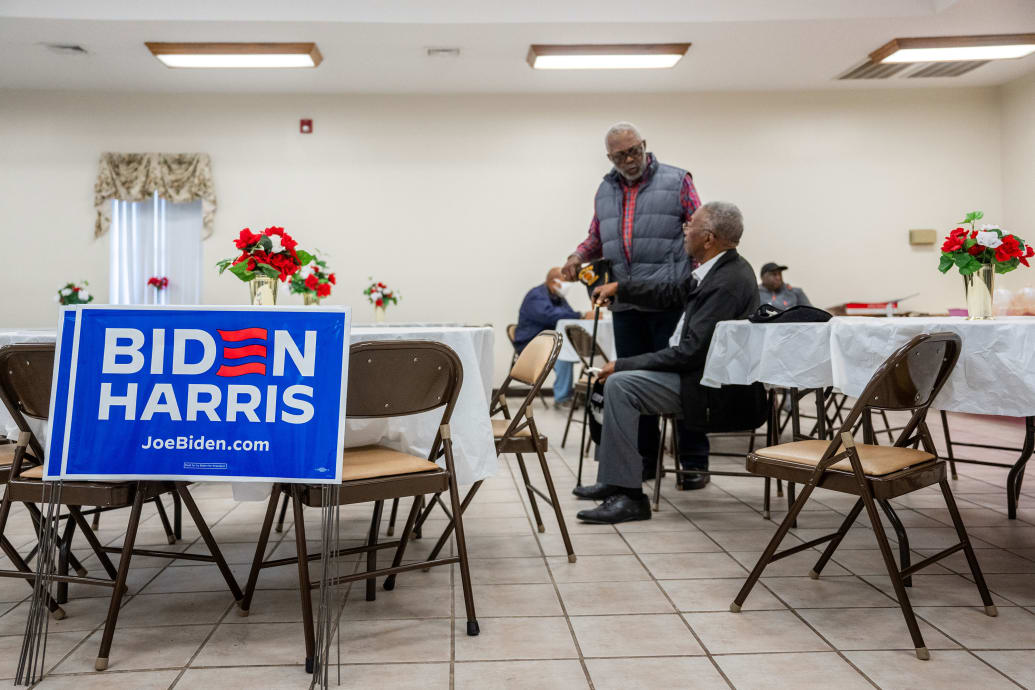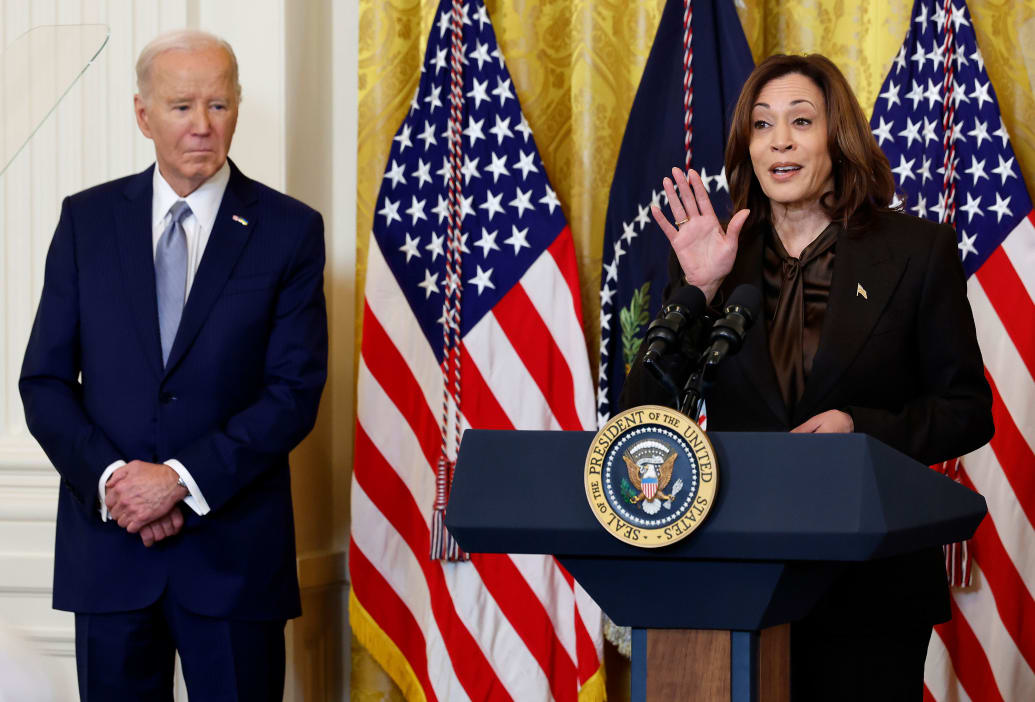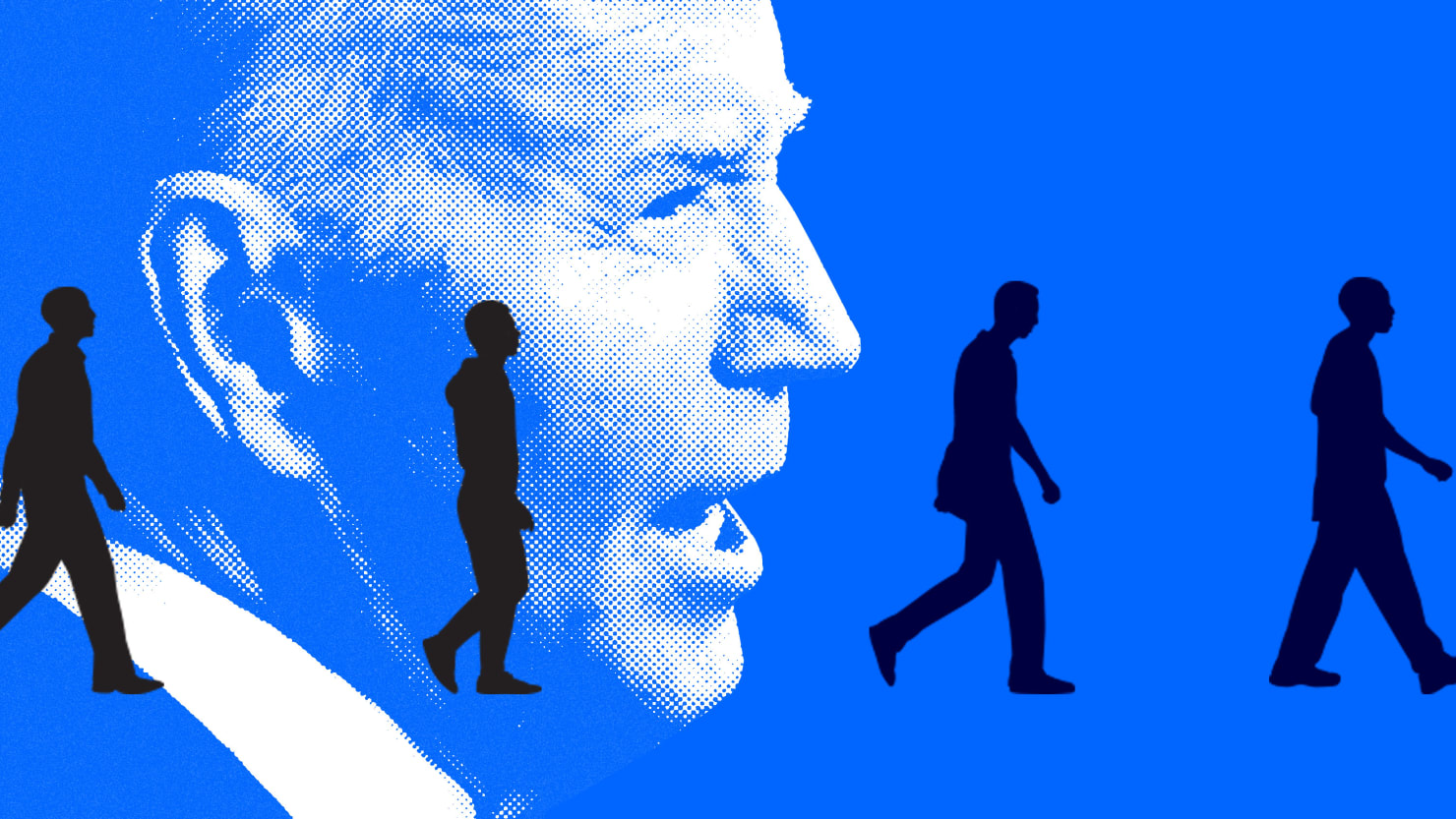President Joe Biden’s erosion of support among Black men should set off alarm bells in his campaign. Unlike other interest groups in the Democratic coalition, Black men should be among his most enthusiastic supporters in crucial states.
The Georgia primary, held this coming Tuesday, may offer a moment for Biden to reflect on the lackluster support of a key constituency.
That’s because the dilemma first came to light in the Peach State during Stacey Abrams’ ill-fated campaign for governor in 2022. Back then, her platform reflected the thinking of strategists that the compelling issue of concern to Black men was criminal justice reform.
But when Black men failed to respond positively, Democratic strategists were quick to point the finger at the perceived shortcoming of the constituency, including unfair allegations of misogyny. The campaign of Republican Gov. Brian Kemp, by contrast, drew support from white (and some Black) working-class men with an appeal to “pocket book” concerns. Abrams gradually adjusted her platform with a set of economic policies called the “Black Men’s Agenda.”
The adjustment drew support, but too late to make up for lost ground. Still, it should have provided insight for Biden and Democratic strategists, but evidently did not. Now Biden faces a continued shortfall as Donald Trump plays to fill the role of a champion of Black men.

1975810264
Supporters of President Joe Biden attend a “First In The Nation” rally at the Daydawn Baptist Church in Pineville, South Carolina.
Brandon Bell/Getty Images
Biden’s reluctance to crusade for working-class men is mind-boggling. One suspects it stems from the priorities of a coterie of upper-class Black confidants, like Vice President Kamala Harris, who tend to keep the constituency at arm’s length. In Jan. 2023, Harris acted as Biden’s liaison to a gathering of Black men concerned about the disconnect. She promised to represent their concerns and work to correct things; a year later, there is no evidence of any substantial follow-through.
W. Mondale Robinson, founder of the Black Male Voter Project and mayor of Enfield, North Carolina, was not invited to the session. But if invited, he would not have attended over doubts about the sincerity, he told USA Today, adding, “People come to our communities two, three months before an election, talking about proverbial fried chicken and church fans with nothing else to offer us, nothing to address the issue that’s really plaguing our lives.”
Beyond Harris, Biden’s reliance on ineffective confidants may include the progressive wing of the Congressional Black Caucus, and its obligation to pro-immigration coalition partners. At times, the CBC is willing to sacrifice the interests of working class men in the hopes of gaining support from Hispanic, Asian, and Arab voting blocs, with a history of under-performance.
Meanwhile, recent outreach instruments like the “Biden-Harris Fact Sheet” on Black opportunity come off as transparent gimmicks, largely isolating benefits available to all as somehow specific to Black folk. Yet, if Biden prioritized the material needs of Black men in the same manner that Democrats are doing for border migrants in sanctuary cities, his poll numbers would probably improve.
I offer the following ideas for a “Black Men’s Agenda” for November.
The Infrastructure of Biden’s Dilemma
First, Biden should champion an inclusive civil construction industry. The oversight is dismaying because it was one of the planks in Stacey Abrams’ agenda—Georgia has a vibrant residential, commercial, and civil construction industry—and it plays to his signature infrastructure law.
“Mr. President, why not stand with Black men seeking skilled jobs in the construction industry? You certainly did so for the white-run auto workers union and it was an impressive display of solidarity with striking workers.”
However, Black labor tends to be shut out of the skilled occupations and contracting opportunities in the huge industry. The high rates of displacement and discouragement stem from a history of union racism and contractor preference for immigrants. As such, the racial demographic these days is 60 percent white, 30 percent Hispanic, and 5 percent Black American, according to the U.S. Bureau of Labor Statistics.
In New York City, the construction industry employed 374,000 people in 2020—53 percent of whom were immigrants—even as Black men experienced the highest unemployment levels. Most recently, New York advocates for border migrants welcomed them at bus stations with invitations to apply for construction work certification—a process recently subject to prosecution for bribery.
Travis Watson, a commissioner on the Boston Employment Commission, wrote in a 2021 article, “Union Construction’s Racial Equity and Inclusion Charade,” that in Boston Black labor is largely excluded from construction jobs due to union and contractor bias. The dynamic was explored in the 2022 NPR report, “Boston construction sites still have very few Black workers. Who’s to blame for that?” and is indicative of a national trend.

2033107501
U.S. President Joe Biden (L) listens to Vice President Kamala Harris as she addresses governors from across the country on Feb. 23, 2024, in Washington, DC
Chip Somodevilla/Getty Images
Even during the aftermath of 2005’s Hurricane Katrina, federal contractors exploited the cheap labor of immigrant work crews rather than hire and train Black men from the region.
The infrastructure law was meant to correct the history of substitution. The CBC supported President Biden’s infrastructure legislation with the expectation of thousands of well-paid jobs for their people on highway, bridge, tunnel, and public building renovations. Such projects will require the hiring and training of thousands of skilled workers with high school and some college education.
The law called on states to devise plans for the inclusion of under-represented workers in civil construction. To date, the administration has failed to hold states to account for equity planning. And, according to John Warren, publisher of the San Diego Voice and Viewpoint, prime contractors fail to place ads for construction jobs in Black news sites despite state and federal mandates.
Mr. President, why not stand with Black men seeking skilled jobs in the construction industry? You certainly did so for the white-run auto workers union and it was an impressive display of solidarity with striking workers. Could it be that Biden—and the Democrats—are too beholden to a nexus of immigration advocates and white construction union and contractor donors?
If so, Biden should be inspired by a courageous episode in Black labor history. The United Construction Workers Association (UCWA) was established in 1970 after a federal court found that Seattle unions were operating in violation of the 1964 Civil Rights Act. The UCWA expanded across the country, held protest rallies at work sites to demand inclusive hiring, and helped people get skilled labor jobs.
Defend the Value of Black Labor
Second, Biden must demand that legislation on border security includes employment security protections as well. Currently, Democrats are promoting provisions for migrant work authorization, and funding for social services, that lack safeguards for American workers and communities.
Yet, the effects of immigration—legal and illegal—on Black America are well-documented: The U.S. Civil Rights Commission concluded in 2010 that illegal immigration harmed Black wages and employment. And the 2010 academic study, “Immigration and the Economic Status of African-American Men” concluded, “As immigrants disproportionately increased the supply of workers in a particular skill group, the wage of black workers in that group fell, the employment rate declined, and the incarceration rate rose.”
Meanwhile, Black communities are outraged with Democrats in sanctuary cities diverting resources for border migrants. In Boston’s Roxbury neighborhood, residents watched in frustration as Gov. Maura Healey revoked community access to a state-owned recreational center. It was converted to a shelter for 400 migrants—even though Healey could have selected facilities in white areas. In Chicago, Black residents sued city authorities over similar acts of “taking from Peter to feed Paul.”
It led me to inquire of 25 of the 60 members of the CBC whether they support migrant provisions in the bipartisan Senate bill on border security. Specifically, the issuance of work authorizations and federal monies for shelters, apartment rentals, and medical care? If so, will they demand safeguards to prevent employers and agencies from substituting migrants over Black workers and families in need?
None of the representatives responded, but Biden can act on his own. He can ensure that any such legislation protects the status of American workers, and includes local communities in services, or be subject to a veto.
Esteem Young Black Men
Finally, Biden should showcase initiatives for young men estranged from the economic system—and often from society itself. Such community programs may be models for a national program of youth recovery.
Too many boys suffer a crisis of confidence that prevents them from seizing opportunities. Biden, in fact, should revisit the work of President Barack Obama’s initiative, “My Brother’s Keeper Alliance,” which promoted a support system.
In closing, Biden—and the Democratic Party—can do better if they want working-class Black men to turnout with enthusiasm in November.
Roger House is professor emeritus of American Studies at Emerson College and the author of “Blue Smoke: The Recorded Journey of Big Bill Broonzy” and “South End Shout: Boston’s Forgotten Music Scene in the Jazz Age.” His forthcoming book is “Five Hundred Years of Black Self Governance” by Louisiana State University Press.


